Editor’s Note: This African Stream video report contains disturbing content.
Related Articles
Related Articles
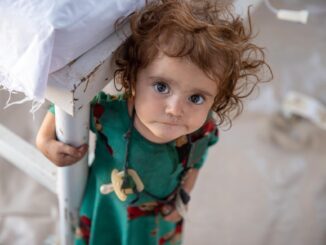
As UN ‘Reviews’ Presence in Afghanistan, Afghans Face More Hunger and Poverty
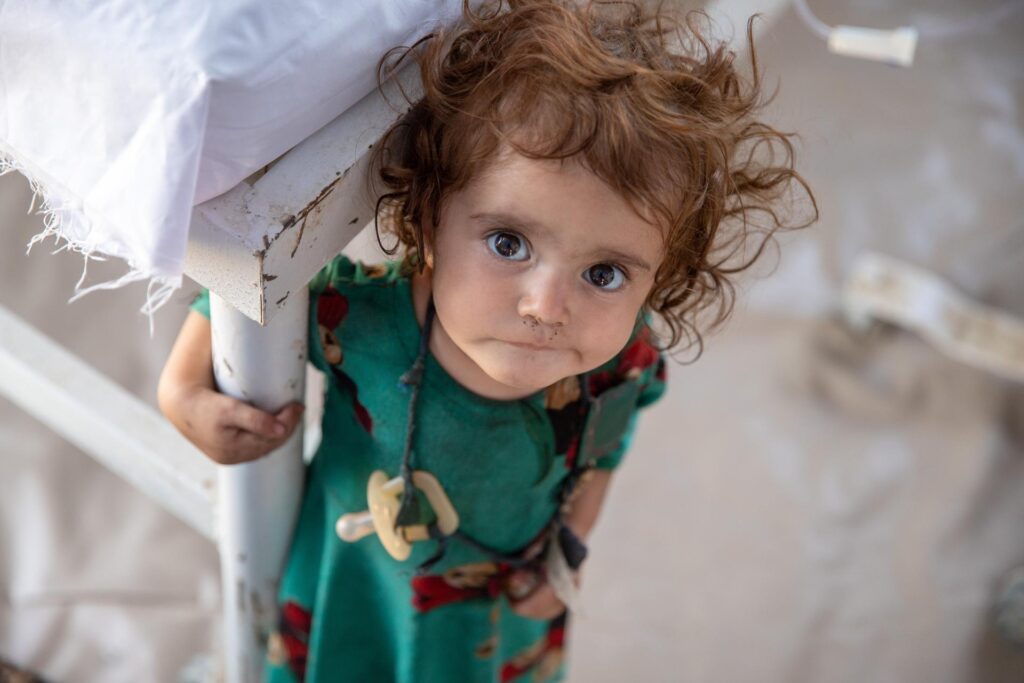
This article was produced by Peoples Dispatch/Globetrotter News Service.
As Afghanistan’s economy continues to spiral, as many as 34 million Afghans are living below the poverty line, says a new UN report. The “Afghanistan Socio-Economic Outlook 2023” report released by the United Nations Development Programme (UNDP) on April 18 highlights the impact of cuts in international aid to Afghanistan since the Taliban took power.
The report notes that the number of people below the poverty line in Afghanistan has increased from 19 million in 2020 to 34 million today. It also adds, “Even if the UN aid appeal for international assistance to reach $4.6 billion in 2023 succeeds, it may fall short of what is needed to improve conditions for millions of Afghans.”
The UNDP report comes after the UN said that it was “reviewing its presence” in Afghanistan following the Taliban’s ban on Afghan women from working for the international organization earlier this month. The UN statement suggested that it may be planning to suspend its operations in the country.
The report also notes that Afghanistan is currently facing a severe fiscal crisis after the ending of foreign assistance “that previously accounted for almost 70 percent of the government budget.” A severe banking crisis also continues. In 2022, Afghanistan’s GDP contracted by 3.6 percent. The report adds that the average real per capita income has also declined by 28 percent from the 2020 level.
On May 1, the UN began holding crucial talks regarding Afghanistan in Doha. The participants include the five permanent UN Security Council members, countries in the region such as Pakistan, India, Uzbekistan, and Tajikistan, and key players such as Saudi Arabia and Turkey. Notably, the de facto Taliban government of Afghanistan was not invited to participate. “Any meeting about Afghanistan without the participation of the Afghan government is ineffective and counterproductive,” said Abdul Qahar Balkhi, Taliban foreign ministry spokesman.
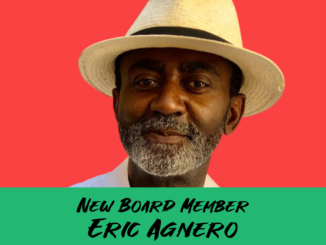
From Mainstream Media to Alternative Press: Q&A with Eric Agnero, New Toward Freedom Board Member
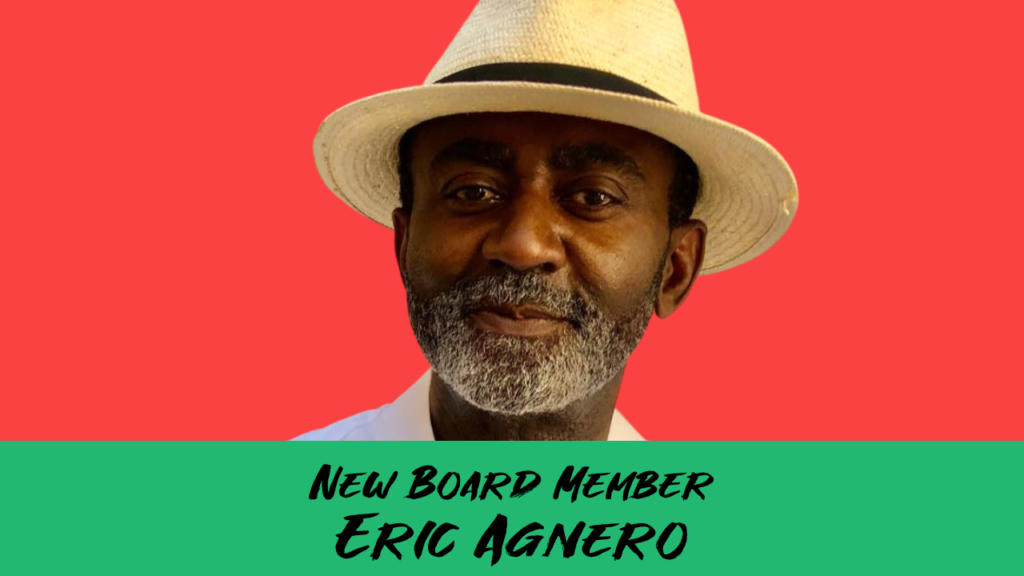
Eric Agnero joined Toward Freedom‘s board on May 14. He is a journalist and political analyst from the Ivory Coast, specializing in U.S.-Africa affairs. At CNN, he covered the 2010-11 Ivorian post-electoral crisis as a West Africa correspondent. He also has reported for Voice of America in Washington, D.C. Having experience in corporate and state-run media outlets has helped Eric understand the gap they leave behind for ordinary people. Aside from his journalistic experience, Eric has worked as communications director at the African Union. Having first moved to Vermont in 2012, he recently returned after several years working for organizations in Africa. Eric now is involved in community media projects with the Association of Africans Living in Vermont, Media Factory, CCTV Center for Media & Democracy, and Vermont Institute of Community and International Involvement.
Here’s what he had to tell Toward Freedom about the role of the media and what’s next to cover in Africa.
What got you interested in joining Toward Freedom’s board of directors?
I started by writing about Africa for TF. Then I realized that my stories could miss authenticity as I am far away from the continent, and could no longer navigate accurately the facts and nuances. I thought it would make more sense for me to be in a position where I can foster a better ownership of the generation of stories about the continent by the journalists on the ground.
You started off working in U.S. corporate and state-run media in the 1990s. How did those experiences develop your understanding of how the media influences public opinion?
Working on that side of the media spectrum has given me the advantage of measuring the impact, as the media in question have a well-defined purpose for which they will constantly re-adjust, especially regarding the subsequent inclination or realignment of the target audience.
What are most media outlets missing when it comes to covering Africa?
When it comes to Africa, most media—especially from the Western world—cannot depart themselves from the Judeo-Christian/Caucasian supremacy philosophy. Africa is always treated by the Western world as the poor infant that needs food, clothes and education. And most Western journalists orient their story with that idea of a plagued continent, where there will always be a dictator who maintains their people in poverty. This might be right, but they fail to report that the former colonial powers and the United States groom most dictators. But, most importantly, that the state of the African continent is in large part the result of Western malign influence and the continuing dwelling of the spirit of the 1884-85 Berlin Conference.
What story should Toward Freedom cover that corporate media has ignored?
The corporate media doesn’t cover the stories of those who are fighting to unroot the colonial and imperialist powers from the continent. The stories of successes in alternative economic, political, and social endeavors that are re-writing history and projecting the so-called “dark continent” of Africa into a bright future. Toward Freedom should therefore hear the stories of journalists from Africa who are part of this movement.
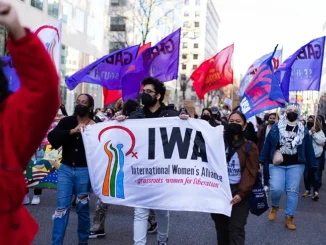
International Women’s Alliance Uplifts Militant Grassroots Struggles in First U.S.-Based Conference
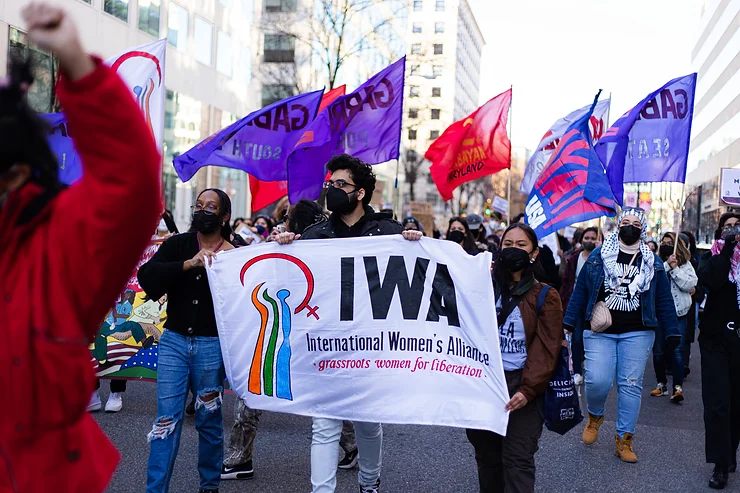
WASHINGTON, D.C.—Hundreds of mostly women gathered at Catholic University’s Maloney Hall during the first weekend of March to convene the first U.S.-based conference of a worldwide grassroots women’s network called the International Women’s Alliance, as well as help strengthen its fledgling U.S. chapter.
The conference kicked off early Saturday morning with speeches by Washington, D.C., “situationers,” Jacqueline Luqman and Madhvi Bahl.
Luqman, a member of the Black Alliance for Peace as well as IWA member organization Pan-African Community Action, gave an overview of how the U.S. government has oppressed Africans, starting from the late 1800s, when former slaves migrated from the U.S. South to Washington, D.C.. The U.S. Congress must approve all legislation passed by the district council and it controls the district’s budget. The U.S. President appoints the district’s judges, while it has no voting representation in Congress.
“It is because we are still a majority Black city, just barely. Forty percent Black with a 30 percent white population that is growing rapidly, due to continued rapacious gentrification,” Luqman told the crowd, which responded throughout her 18-minute presentation with hoots, hollers and applause. Luqman, also Toward Freedom‘s Board Secretary, left the mic to a standing ovation. Her talk can be found 28 minutes into this livestream playback.
Meanwhile, Bahl of the Migrant Solidarity Mutual Aid Network described how migrants’ human rights are being violated as they are used in a political tug of war.
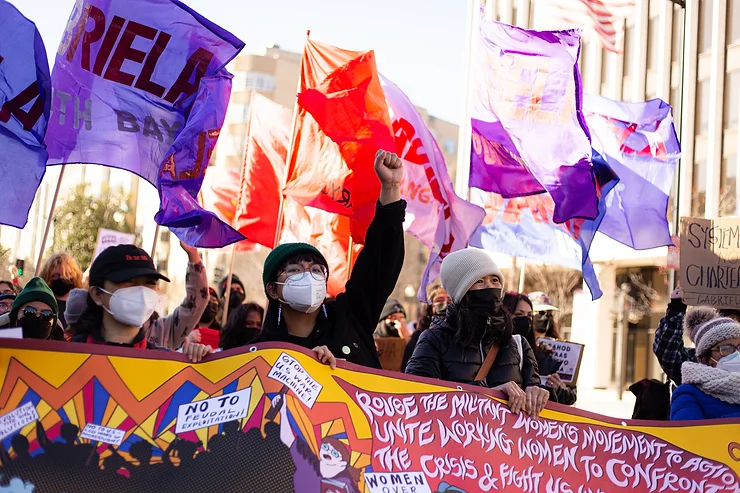
IWA Chairperson Azra Talat Sayeed represents Roots of Equity, a Pakistan-based group that organizes peasants, women and religious minorities in Pakistan. She described the poverty in her country, which she connected to U.S. interference. In Pakistan, 44 percent of children under the age of five are experiencing stunted growth due to lack of food.
“My country is bleeding,” Sayeed said. “It’s a massacre.”
Later, Monisha Rios, a U.S. military veteran and psychologist who lives in Puerto Rico, described the impact of U.S. militarization on women around the world and the effect of U.S. colonialism in Puerto Rico.
Then a panel discussion featured women on the front lines of the working-class movement in the United States.
Edith Saldano of Starbucks Workers United spoke of workplace harassment that led to her radicalization. “Y’all are going to cry with me today,” the Santa Cruz, California-based worker said as her face grew red. She said it is normal for customers to physically attack workers. Saldano described one incident where someone threw a banana at a barista.
The Starbucks worker identified three issues that threaten employed women: Harassment, unstable working conditions (including schedules) and workplace injuries.
“It’s consistently putting working women in survival mode.”
Saldano said already about 100 workers who have been organizing unions in Starbucks coffee shops have been fired and subsequently blacklisted from working at other company stores.
“How do we give the working class a solution?” Saldano asked.
The panel discussion also featured Christina Brown, the sister of 39-year-old Poushawn Brown, a Virginia-based Amazon employee who had no medical training, but was switched to a role that involved testing workers for COVID-19 on a daily basis. However, Christina said her sister was not provided with the proper protective gear nor with hazard pay. A few months after she began testing workers, Poushawn returned home on January 7, 2021, not feeling well. The shock came the next morning.
“She did not wake up,” Christina told conference attendees.
Now, Christina raises her sister’s 14-year-old daughter and is engaged in a legal battle with Amazon.
“I’m up against a trillion-dollar company all by myself. It’s just me doing it. I can’t stop.”
Panel moderator Monica Moorehead, who helped found the IWA, remarked on the recent U.S. federal government’s move to eliminate the Supplemental Nutrition Assistance Program (SNAP), which provides food to poor households. The majority of recipients are people of color.
“This is a slow genocide,” Moorehead remarked.
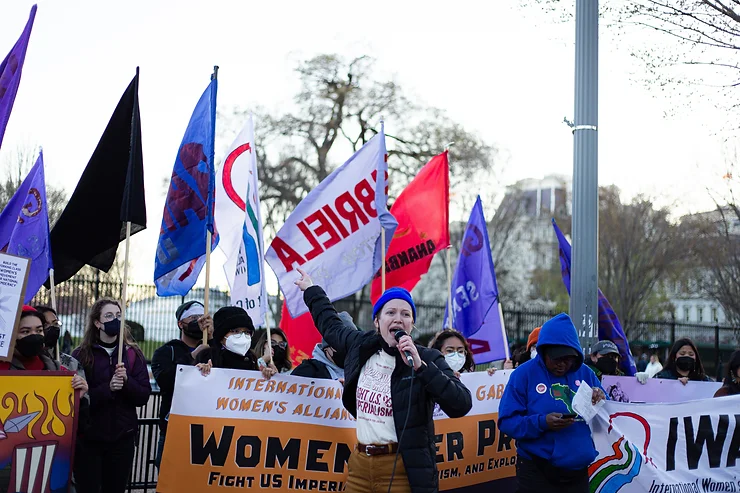
The International Women’s Alliance also introduced a proposed campaign, “Meet Women’s Needs; Stop Corporate Greed!” This campaign is designed to address the failings of the U.S. government to meet the needs of women and their families, and demand change. This comes in addition to previously launched ongoing campaigns, “War and Militarism” and “Women Over Profit.”
The alliance kicked off in 2010 in Montreal in response to the International League of People’s Struggle’s 2008 call for a women’s conference to be held. 2010 was the centennial year International Toiling Women’s Day.
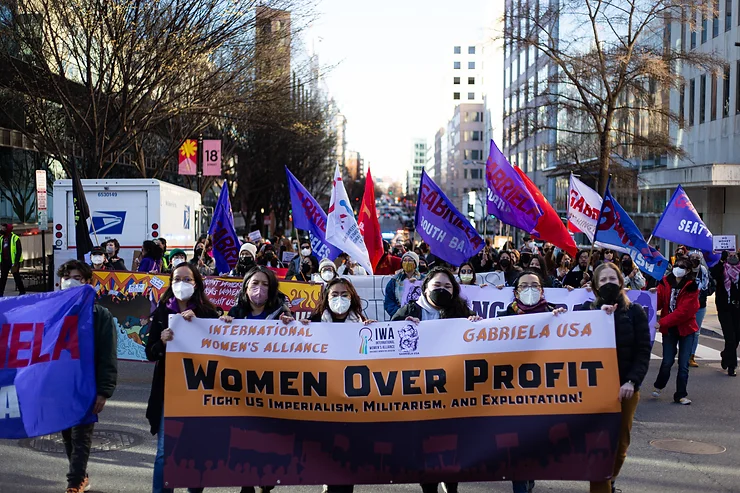
Later on during the first day of the conference, hundreds of women and their supporters started rallying at the Philippine embassy in Washington, D.C.
There, Vivian Flanagan from Terrapin Committee for Human Rights in the Philippines (TerpCHRP) at the University of Maryland College Park, spoke to the impacts of war on women. They focused on one weapons manufacturer found on their campus, Lockheed Martin, and shared how its former executive vice-president, Linda Gooden, is on the Board of Regents that oversees all of Maryland’s public universities.
“Let Linda’s ‘professional success’ at the expense of trafficked, exploited and martyred women affected by Lockheed Martin’s war machine be a reminder of the treachery of liberal feminism,” she said.
After marching to the World Bank, organizations from Palestinian Youth Movement, Katarungan DC, CODEPINK, and spoke about the World Bank’s role in suppressing poor countries through foreign aid that perpetuates indebtedness. Raymond Diaz from Katarungan DC shared about their parents’ migration experience.
“Much like many children of poor immigrants, my Mexican parents left everything they knew when NAFTA came in, driving thousands of laborers out of their homeland and becoming a part of the working class in this country.”
When the march arrived at the White House, speakers from United Students Against Sweatshops (USAS), Committee in Solidarity of the People of El Salvador (CISPES), Anti-Imperialist Action at University of Maryland Baltimore County, International League of Peoples Struggles (ILPS), African National Women’s Organization, Resist U.S. Led War, and IWA emphasized the call for international solidarity.
At the White House, Katie Comfort of IWA called for the unity of women and urged for the need to organize.
“Women are uniting around the world against U.S. imperialism and [women in the] the U.S. [have] to be a part of that movement. The International Women’s Alliance takes seriously the call to build IWA Americas not just here in the U.S., but in the Caribbean, in Latin America, to unite women around the world, to understand our common enemy is the U.S., the U.S. state, the U.S. military, who kills and rapes our women. So, we are here today to say the movement has to start now. We are not just here this weekend to speak out about it one time, but to keep speaking out about it until this House belongs to the People. We are here to declare Women over Profit.”
Julie Varughese is editor of Toward Freedom.
